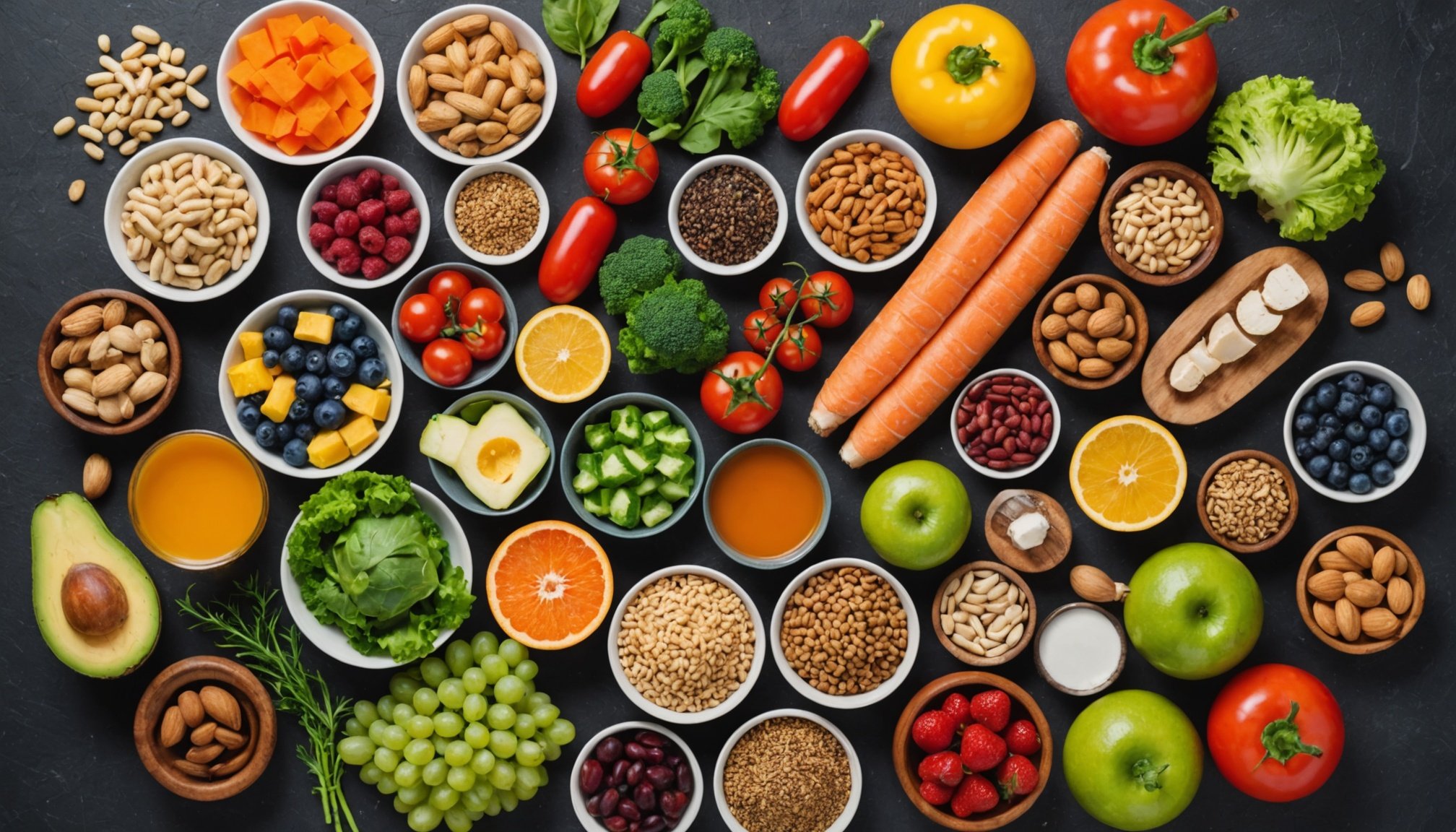In recent years, gut health has emerged as a critical aspect of our overall well-being. A growing body of research highlights the connection between the gut, our microbiome, and various facets of health, including mental and digestive health. As we delve into this topic, we will explore how understanding gut health can play a pivotal role in enhancing our daily lives. From the foods we consume to the bacteria that inhabit our intestines, every detail contributes to our health and mental clarity. This article will provide valuable insights that can empower you to take charge of your health by focusing on your gut.
The Role of the Gut Microbiome
The gut microbiome refers to the trillions of microorganisms residing in our intestines. These bacteria play a vital role in breaking down food, absorbing nutrients, and maintaining the integrity of the gut lining. They also influence our immune system, helping to fend off illness and disease.
In parallel : How does air quality in UK cities impact respiratory health among residents?
Recent studies have demonstrated that the health of our gut microbiome is directly linked to our mood and mental health. For instance, when the balance of good and bad bacteria is disrupted, it can lead to symptoms of stress, anxiety, and depression. This is often referred to as the gut-brain axis, where signals from the gut can influence brain function and mood.
Maintaining a diverse and balanced gut microbiome is crucial. This can be achieved through a diet rich in healthy and fiber-rich foods. Foods such as fruits, vegetables, whole grains, and fermented products like yogurt and kimchi are excellent for promoting the growth of beneficial bacteria. On the other hand, diets high in sugar and processed foods can harm the microbiome, leading to health issues.
Also to discover : How can telemedicine improve healthcare access for rural communities in the UK?
In the UK, many individuals are now becoming more aware of their gut health, often seeking out probiotic supplements or fermented foods that promote a thriving microbiome. By prioritizing gut health, you not only improve your digestive system but also enhance your overall mood and mental clarity. Understanding the role of the microbiome is the first step towards better health and well-being.
The Connection Between Gut Health and Mental Well-Being
The link between gut health and mental well-being is a fascinating area of study. Researchers have discovered that the gut is not just involved in digestion; it plays a significant role in regulating emotions. For example, serotonin, a neurotransmitter that helps regulate mood, is primarily produced in the gut. Therefore, a healthy gut can contribute to a positive mood and emotional stability.
When the gut microbiome is imbalanced, it can lead to increased inflammation, which is often associated with mood disorders. Chronic inflammation can hinder the production of neurotransmitters, leading to feelings of anxiety and depression. This connection underscores the importance of maintaining a healthy gut to support mental health.
Implementing dietary changes can effectively improve both gut and mental health. A Mediterranean-style diet, rich in healthy fats, lean proteins, and plenty of fruits and vegetables, is particularly beneficial. Foods like fatty fish, nuts, and seeds provide omega-3 fatty acids, which have been shown to promote brain health and reduce symptoms of depression.
Moreover, practicing mindful eating can also enhance your gut health. Paying attention to what you eat and how it makes you feel can help you make better dietary choices. Incorporating good practices such as reducing processed food intake and increasing your consumption of whole foods can foster a healthier gut and, consequently, a healthier mind. By understanding this connection, you can take proactive steps to nurture both your gut and your emotional well-being.
Foods That Boost Gut Health
What you consume plays a significant role in your gut health. Certain foods are known to foster a thriving microbiome, while others can disrupt its balance. To enhance your overall health, it’s essential to focus on a diet that includes a variety of healthy foods.
Fermented foods are among the best choices for supporting gut health. Products like yogurt, kefir, sauerkraut, and kombucha are rich in probiotics, which can help replenish beneficial bacteria in the gut. These foods not only aid digestion but can also enhance your immune system and contribute to better mood stability.
In addition to fermented foods, prebiotics are equally important. Prebiotics are non-digestible fibers that feed the beneficial bacteria in your gut. Foods high in prebiotics include garlic, onions, leeks, asparagus, and bananas. Incorporating these into your diet can help create an environment in the gut that allows good bacteria to thrive.
Moreover, whole grains such as oats, barley, and brown rice are excellent sources of fiber that can aid digestion. Eating a diverse range of fruits and vegetables can also contribute significantly to gut health. Berries, leafy greens, and cruciferous vegetables like broccoli are packed with nutrients and beneficial compounds that support a healthy microbiome.
On the contrary, it’s important to limit the intake of processed foods, sugars, and artificial sweeteners, which can negatively impact gut health. By focusing on whole, nutrient-dense foods, you can create a balanced diet that supports both your gut and overall well-being.
The Impact of Stress on Gut Health
Stress is a common factor that many people experience in today’s fast-paced world, and it can have a profound impact on your gut health. When you are stressed, the body produces hormones like cortisol, which can disrupt the balance of bacteria in the gut. This can lead to digestive issues, such as bloating, gas, and even conditions like irritable bowel syndrome (IBS).
Understanding the relationship between your mental state and gut health is crucial. When the gut is under stress, it may not function optimally, leading to a cycle of poor gut health and increased stress. To combat this, it’s essential to develop strategies for stress management. Techniques such as mindfulness, meditation, and regular physical activity can help mitigate stress, thereby promoting a healthier gut.
Additionally, incorporating foods that support stress relief can be beneficial. For example, foods rich in magnesium, such as dark chocolate, nuts, and leafy greens, can help reduce stress levels. Omega-3 fatty acids, found in fish like salmon and walnuts, are also known to support brain health and reduce anxiety.
Furthermore, prioritizing sleep is another critical factor in managing stress and supporting gut health. Poor sleep can exacerbate stress and disrupt the microbiome, leading to a range of health issues. Ensuring you have a consistent sleep schedule and creating a relaxing bedtime routine can enhance both your mental state and gut health.
By recognizing the link between stress and gut health, you can take proactive steps to improve your overall well-being. Fostering a healthy gut not only supports digestion but also contributes to a more balanced mood and better stress management.
Conclusion
Understanding the significance of gut health is essential for anyone looking to improve their overall well-being. The gut microbiome plays a vital role in not just physical health but also mental health. By adopting a diet rich in healthy foods, reducing stress, and being mindful of your eating habits, you can nurture your gut and, in turn, enhance your quality of life.
The connection between gut health and various aspects of health is undeniable. As you continue to learn about the microbiome and its impact, remember that small changes in your diet and lifestyle can lead to significant improvements in your health. Whether it’s incorporating more fermented foods, practicing stress management techniques, or simply being more mindful of what you eat, each step you take can lead to a healthier gut and a happier, more fulfilled life.
In the UK and beyond, embracing the concept of gut health is becoming increasingly popular. By understanding the importance of our microbiome and the foods that support it, you can empower yourselves to make informed choices for a healthier future.










